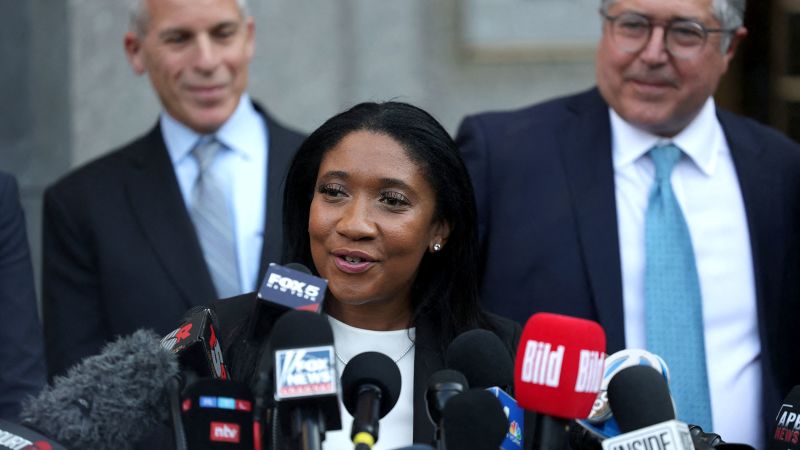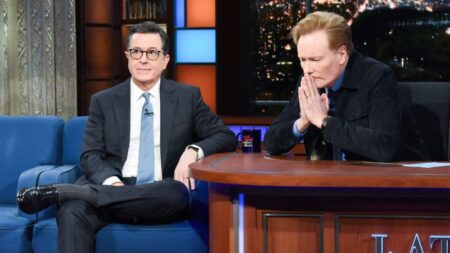In a recent development concerning Sean “Diddy” Combs, his legal representative Nicole Westmoreland revealed in an exclusive interview with CNN that the music mogul’s defense team has initiated discussions with the Trump administration regarding a potential pardon. This comes in light of Combs’ recent conviction on two counts of transportation for the purpose of engaging in prostitution. Last month, a jury acquitted him of more serious charges related to racketeering conspiracy, commonly known as RICO, and sex trafficking. Given the gravity of the case, the conviction has resulted in a potential maximum sentence of up to 20 years, though analysts predict Combs might serve a considerably shorter term due to the nature of the charges.
Westmoreland asserted in the interview, “It’s my understanding that we’ve reached out and had conversations regarding a pardon,” indicating their proactive stance in seeking clemency for Combs. These discussions come amid uncertainty, as former President Trump remarked in an interview that while he had a positive relationship with Combs in the past, he found him to be hostile upon entering office, complicating the matter of a pardon. Trump emphasized that such dynamics make a pardon “more difficult to do.”
Despite these remarks, Westmoreland maintains that Combs holds a hopeful outlook regarding the pardon process. “He is a very hopeful person, and I believe that he remains hopeful,” she stated when asked about Combs’ sentiment following Trump’s comments. However, a White House official has refrained from commenting on whether any clemency request is currently being entertained.
In a trial characterized by tension and notable testimony, Combs faced a jury that found him guilty on the lesser charges but cleared him of the more serious allegations, unveiling the complex dynamics of the legal proceedings. Prosecutors initially portrayed Combs as a dominant figure in a criminal enterprise involving coercion and manipulation. They claimed that he and his associates used threats and violence against victims like Casandra “Cassie” Ventura and another woman, described as “Jane,” to engage in illicit activities. This approach was met with rigorous scrutiny as the defense team focused on discrediting the prosecution’s evidence and witness testimonies, claiming the case against Combs lacked substantiation.
The defense strategy emphasized truthfulness; Westmoreland noted, “We didn’t need a creative story… we knew that telling the truth would mean not guilty.” This sentiment grew as Combs’ legal team argued that the pursuit of charges was misguided from the outset, asserting that the allegations were unfounded and that the government continued its prosecution without legitimate evidence. Westmoreland highlighted that the jury likely recognized the prosecution’s weaknesses, stating, “The jury saw through it.”
Westmoreland’s role during the trial was critical; she conducted cross-examinations that aimed to unravel the prosecution’s narrative. Her challenging of witness testimonies, particularly that of Bryana Bongolan, who testified about a supposed violent incident, was noteworthy. Westmoreland successfully demonstrated that Combs could not have been present at both the alleged location and another event simultaneously, garnering positive remarks from the presiding judge.
As the trial concluded, Combs faced the realities of being incarcerated at Brooklyn’s Metropolitan Detention Center, where bail requests were denied multiple times, underpinning the serious nature of the allegations against him. Various correspondences from individuals associated with the case, some of whom expressed concern for their safety should Combs be released, have contrasted dramatically with letters of support from others, highlighting the divided opinions surrounding the case.
Looking ahead, Combs is scheduled to be sentenced on October 3, while Westmoreland confirmed that they are preparing an appeal as soon as possible. The stark consequences of the trial and the associated media scrutiny have taken a toll on Combs, described by Westmoreland as a humbling experience for someone who had previously faced the possibility of life in prison. The combined challenges of the legal battle and incarceration have presumably led to significant reflections on his life choices and the judicial process, as he navigates this pivotal chapter of his life.











